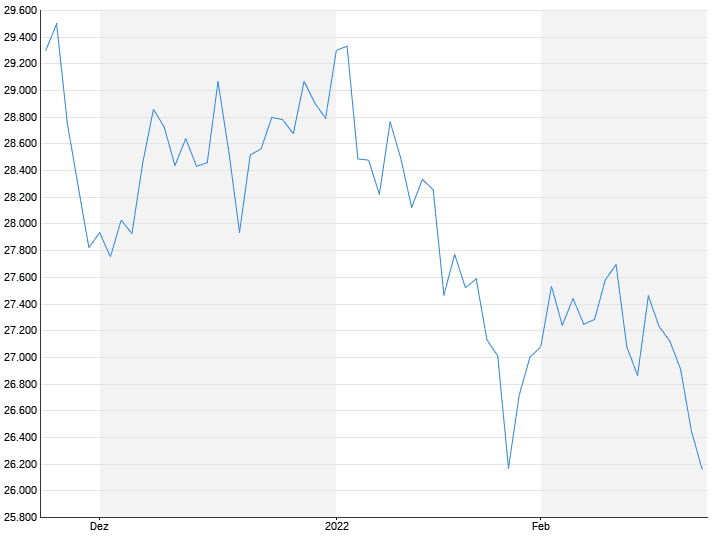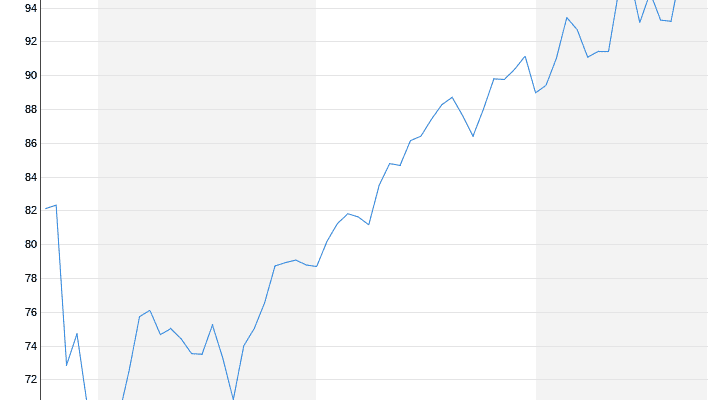Asian stock markets plummet
Oil price surpasses $100 for the first time in seven years
02/24/2022, 07:37 am
The escalation in Ukraine is causing shocks in the markets: the price of oil has risen to more than 100 dollars for the first time in more than seven years, prices on the Asian stock exchanges are collapsing, the ruble is losing almost six percent and Moscow is suspending stock exchange trading.
After the announcement of a Russian “military operation” in Ukraine, the price of a barrel of oil (159 liters) rose to over $100 (89 euros) for the first time in seven and a half years on Thursday night. The price of a barrel of Brent crude rose to $101.03.
Putin previously announced a “military operation” in Ukraine in a late-night televised address. “I made the decision for a military operation.” Putin called on the Ukrainian military to “lay down their arms” and threatened retaliation for any interference in the Russian operation. Immediately after the announcement, explosions were heard in several cities in Ukraine, including the capital Kiev and the port cities of Mariupol and Odessa.
Markets in Asia continued their sell-off on Thursday amid the war in Ukraine. The Hong Kong stock market fell more than 3 percent in response to Putin’s announcement. The Japanese Nikkei lost 2.1 percent to 25,883.54 points. The euro lost 0.8 percent to $ 1.1218. Gold increased by two percent to 1944.16 euros.
Moscow Stock Exchange suspends trading

The ruble also fell to a record low. It lost 5.77 percent to $86.1198. The Moscow stock exchange suspended all trading. The stock exchange announced that a resumption would be announced later. The Moscow stock exchange had already collapsed massively in the past few days as a result of the Ukraine crisis.
“However, a shortage of commodities and the need for the risk premium on equities to rise sharply due to geopolitical risks could mean that inflation will remain elevated for longer, threatening the rate hike cycle will have to be steeper,” said Tapas Strickland, economic director of the National Australia Bank.
